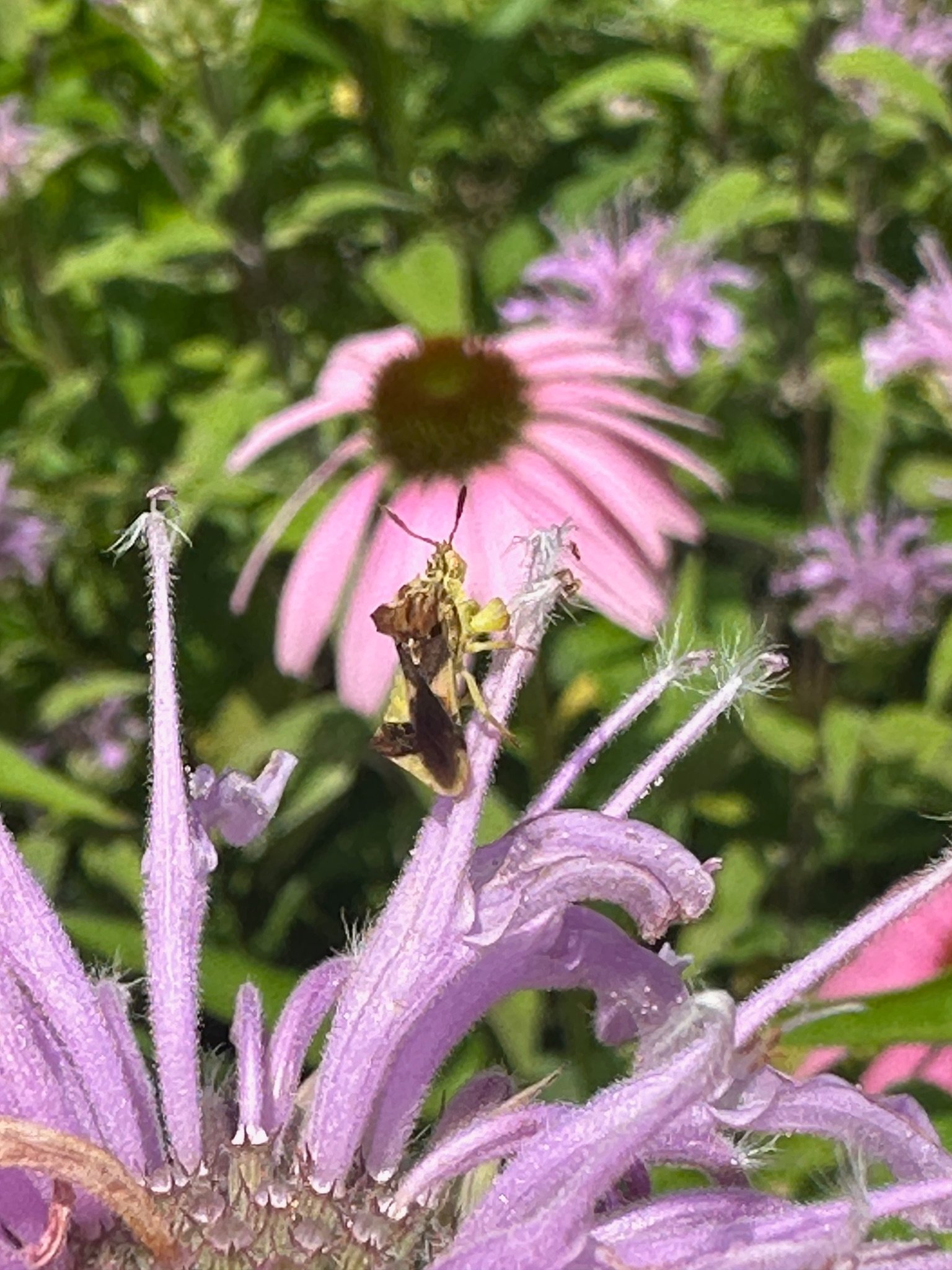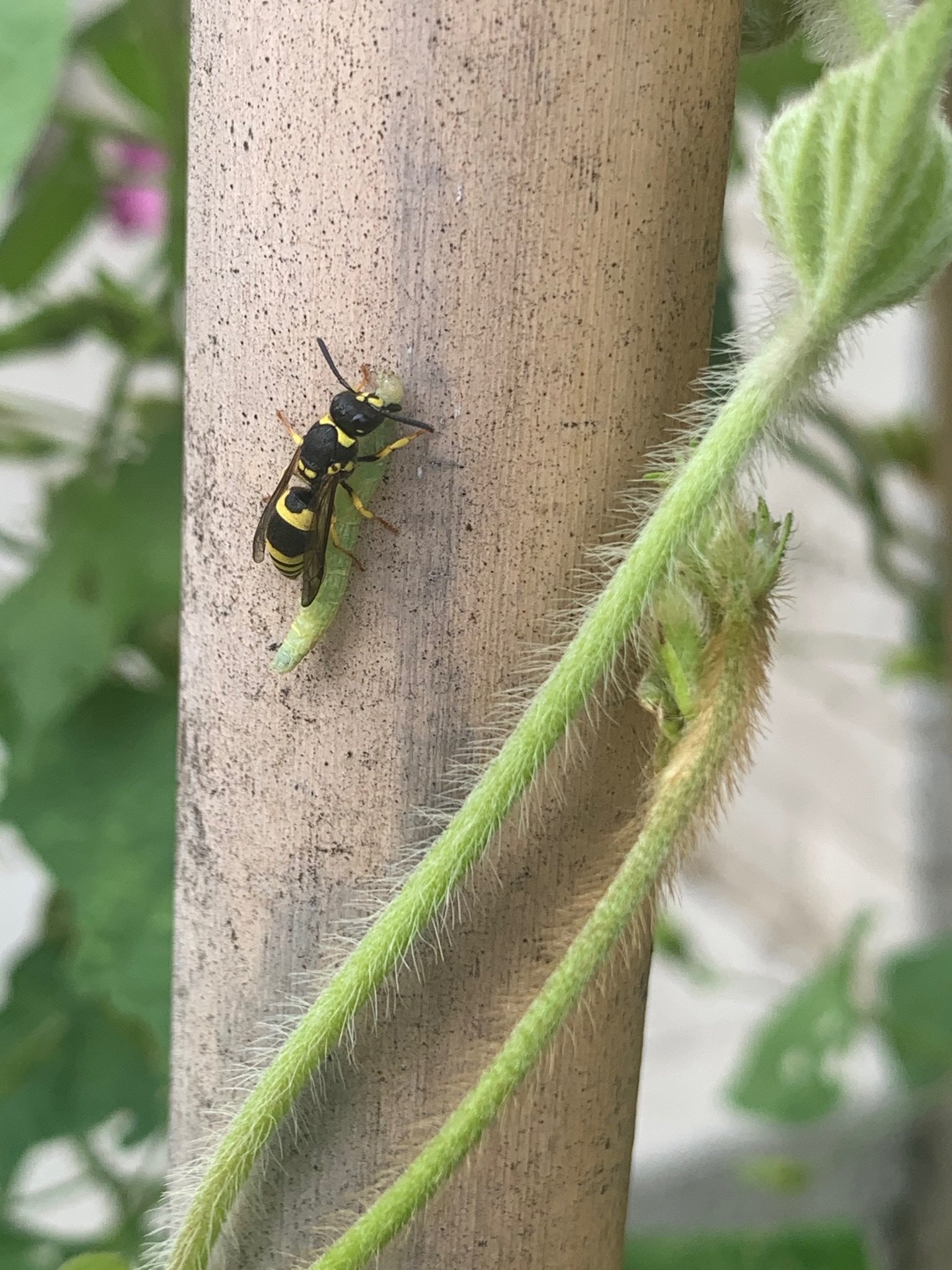
Beneficial Insects
When you think of "Beneficial Insects," pollinators are likely the first to come to mind—and for good reason! Their role in supporting gardens, agriculture, and ecosystems is truly invaluable. However, their importance often overshadows other remarkable insects that contribute in diverse ways. Make no mistake, pollinators deserve all the recognition we can give; without their relentless work, our food supply would be drastically reduced.
Yet, it’s vital to remember the unsung heroes of the insect world. Beyond pollinators, many beneficial insects play essential roles as natural pest controllers, soil enrichers, and ecosystem stabilizers. For gardeners who love growing their own food or enhancing biodiversity, these hardworking allies are indispensable.
Pennsylvania Ambush Bug
Beneficial Insects Hard at Work
Lets go into a bit more detail about the importance of beneficial insects in your garden.
Natural Pest Control: Predatory insects, such as ladybugs, lacewings, and parasitic wasps, are invaluable for managing pest populations. These helpful creatures feed on common garden pests, keeping your plants healthy and pest-free.
Soil Enhancement: Beneficial insects play a role in enhancing soil health which directly supports plant growth. We talk more about soil health here Soil Health. They work to decompose organic matter recycling the nutrients back into soil for plants to use. Additionally, burrowing insects aerate the soil which improves its structure and allows plant roots to spread more effectively.
Stabilize Ecosystems: By reducing the need for chemical pesticides, beneficial insects contribute to a more balanced and biodiverse garden. Their presence supports a healthier environment for plants, animals, and microorganisms.

European Potter Wasp Capturing a Caterpillar

Crab Spider Waiting to Ambush
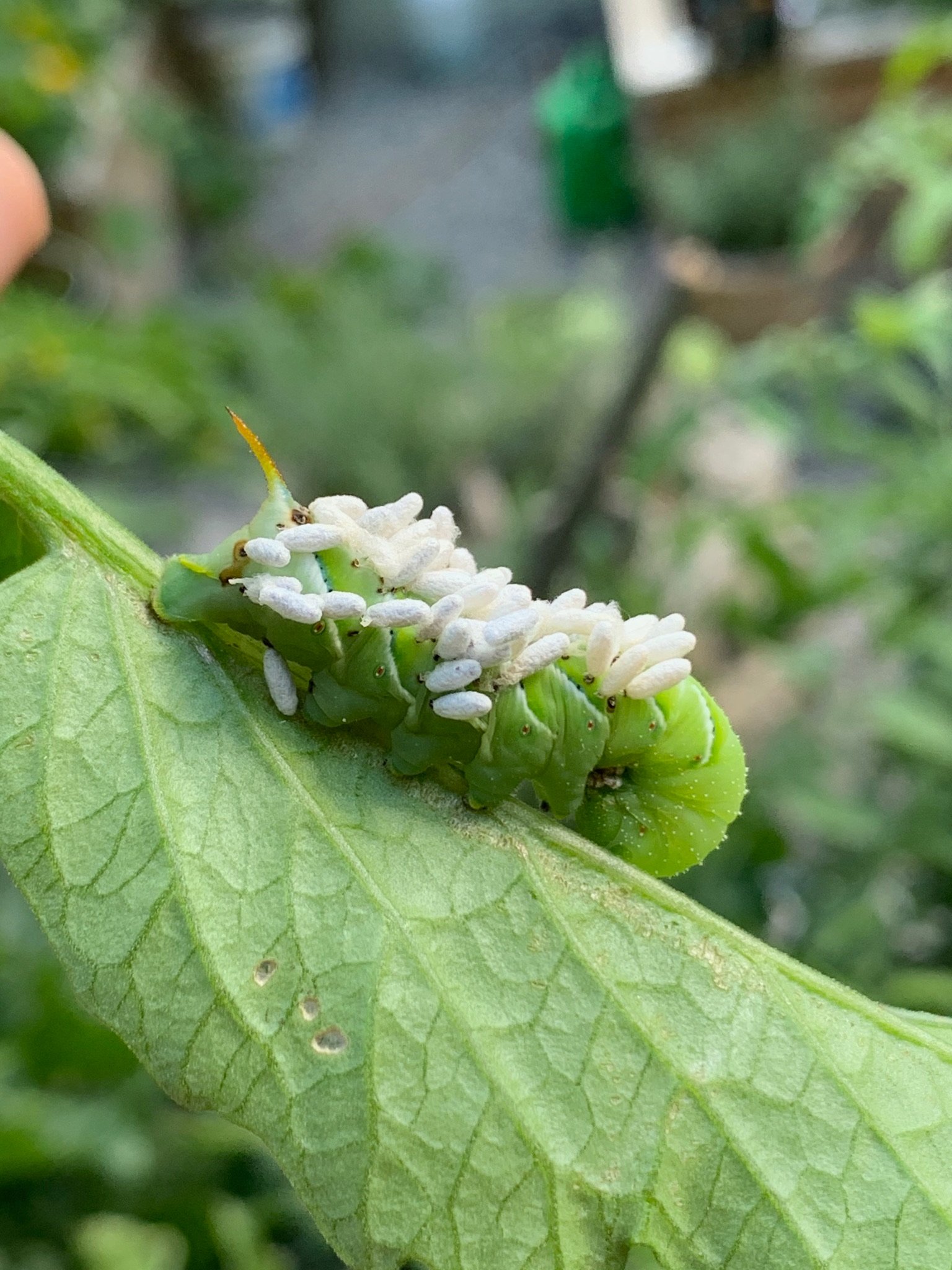
Tomato Hornworm Covered in Braconid Wasp Cocoons
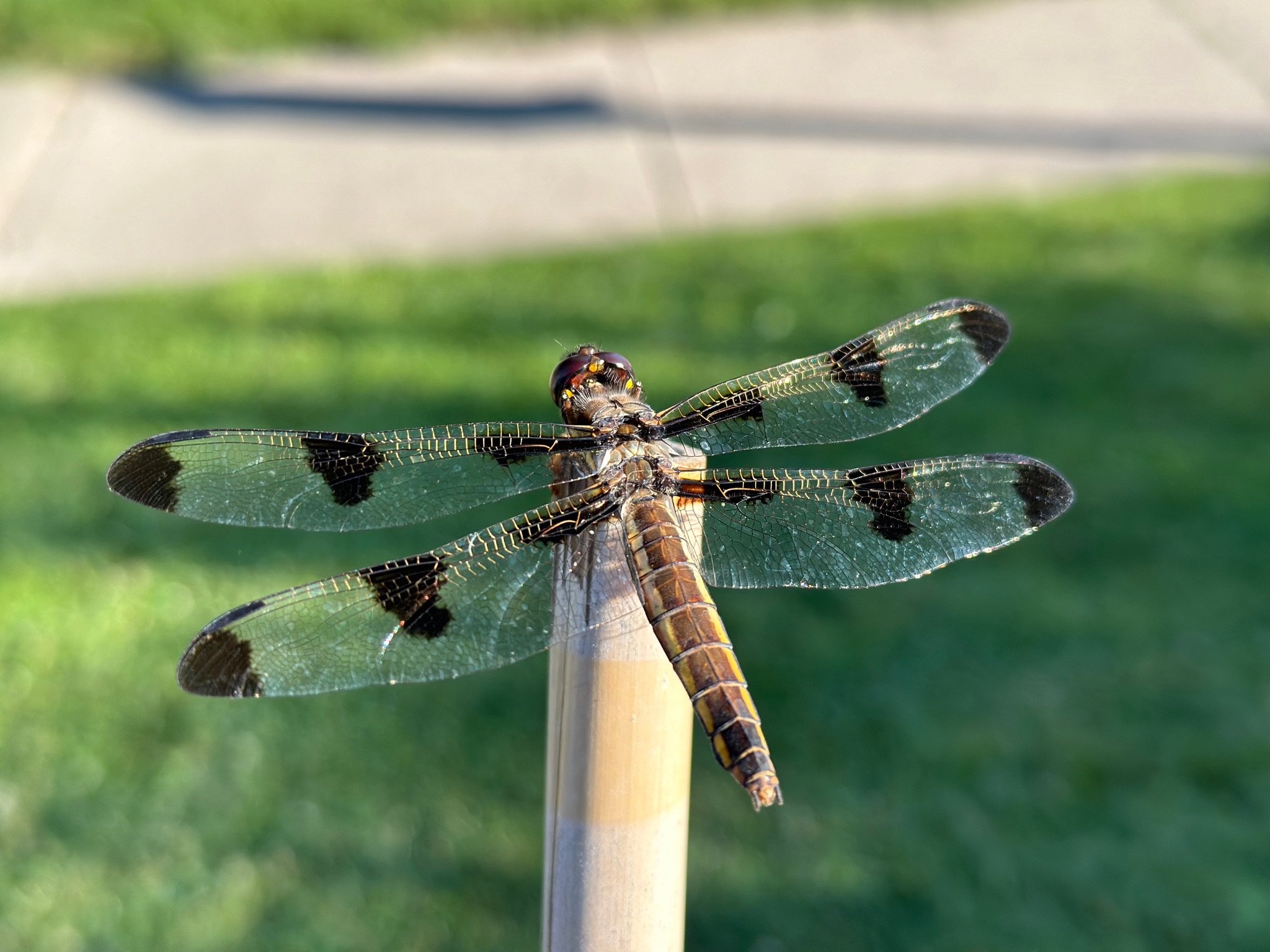
Dragonfly Recharging After the Chase

Yellow Garden Spider Waiting for Prey
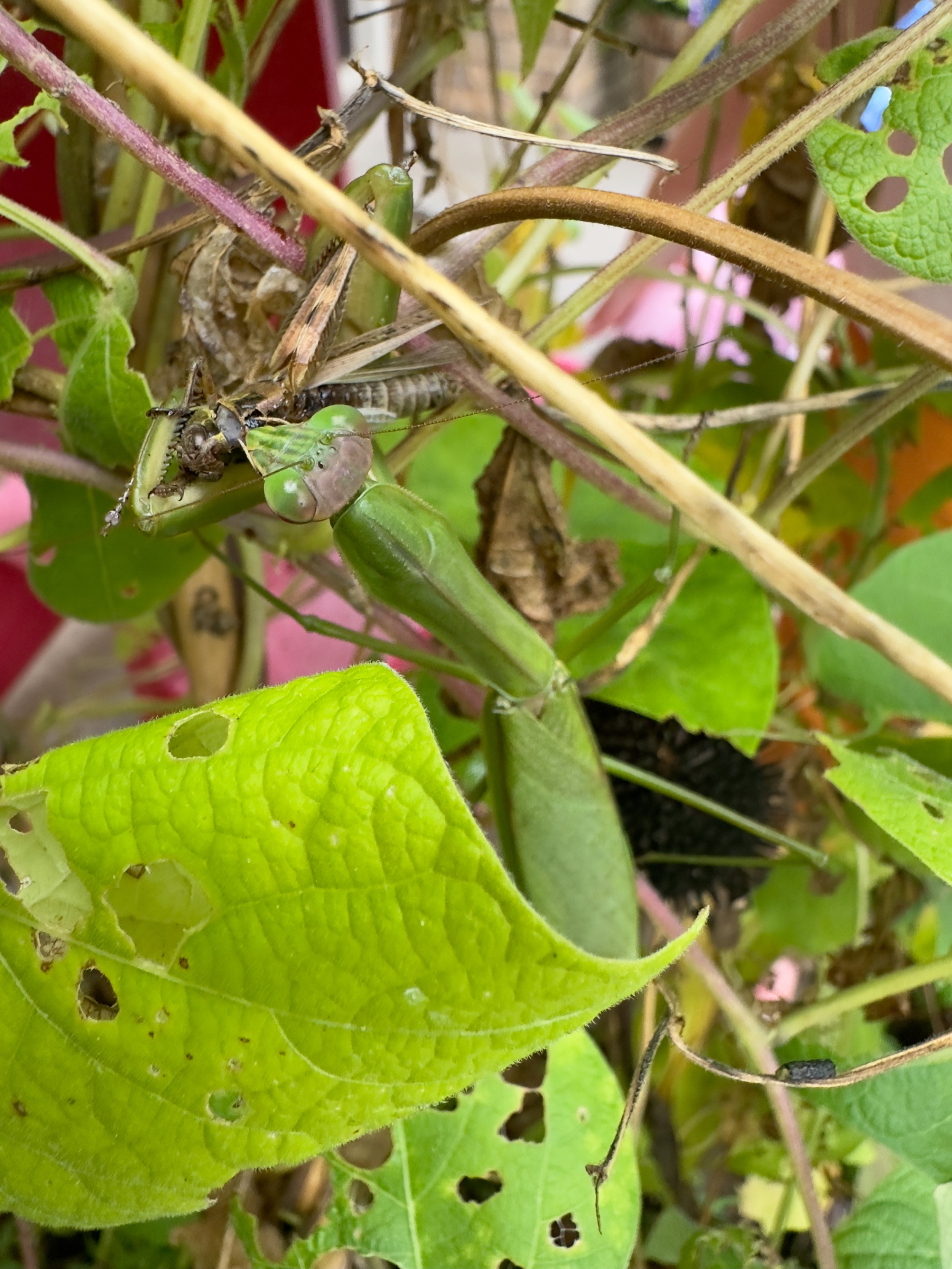
Praying Mantis Feasting on a Grasshopper
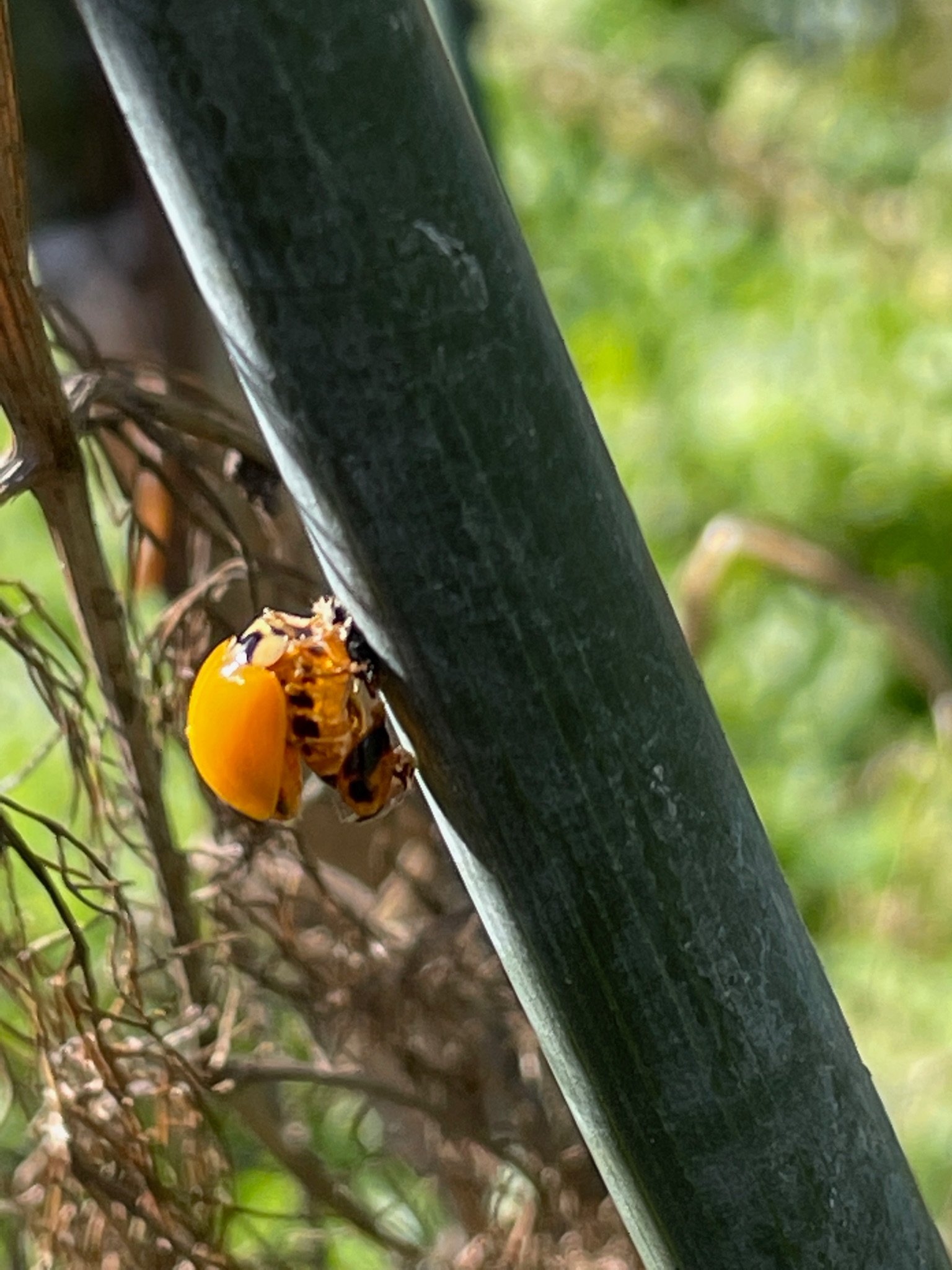
Ladybug Emerging from Its Pupa
How to Attract Beneficial Insects
After learning about the importance of beneficial insects in both your garden and the natural environment, you might be wondering how to attract them. Luckily, there are several effective ways to attract these helpful allies. Let’s explore some practical options to create a welcoming habitat for them.
Diversify Your Garden: Attract beneficial insects by planting a wide variety of plants with blooms that stagger throughout the season, ensuring a consistent food source. Provide plenty of hiding spots and include flowers in different colors to appeal to various insect species. Native plants are especially effective, as they serve as the ideal food source for many beneficial insects.
Provide Shelter: Abundant greenery naturally provides shelter, but as summer ends, leave plants standing to support insects through the winter. Avoid removing leaves until after the final spring frost to give them a safe haven. Include hollow plant stems, leaf piles, and rotting logs as excellent spots for insects to hide and lay eggs.
Offer a Water Source: Like humans, insects need water to survive. By providing a water source, you can create an environment that attracts beneficial insects. A simple solution is to use shallow water trays, like the ones from plant pot bases. Adding small stones or similar structures allows insects to safely lower themselves to the water's surface to drink. This thoughtful addition ensures they can access water without struggling or risking harm, this will also create an easy way for insects to climb out of the water if they fall in.
Companion Planting: Companion planting is a strategic method to invite beneficial insects into your garden, fostering plant health. By offering their preferred food sources or nesting habitats, these insects naturally support the ecosystem. A noteworthy example is the Braconid wasp, which targets tomato hornworms. These wasps are attracted to small-flowered plants like Yellow Pimpernel and Golden Alexander, making them ideal companions for tomatoes. When planted nearby, these flowers provide essential nourishment for adult Braconid wasps. Tomatoes, and other plants in the nightshade family, emit chemical signals known as volatile organic compounds when under attack by herbivorous insects. These signals act as a beacon for parasitic wasps, guiding them to their prey. Braconid wasps lay their eggs inside the hornworms, and their larvae consume the caterpillar from within. This natural predator-prey cycle effectively reduces herbivore populations, safeguarding your plants from further damage.
Reduce Artificial Lighting: Artificial lighting can interfere with insects' natural behaviours, including navigation, mating, and feeding. If you can’t leave your outdoor lights off, reduce the impact on nocturnal insects by consider using soft, motion-activated outdoor lighting. This approach minimizes disruptions while still providing necessary illumination.
Avoid Chemicals: To maintain a natural and thriving garden, it’s best to avoid using chemicals, particularly pesticides and herbicides. These substances can harm the environment and unintentionally kill species beyond the intended targets. Instead, focus on creating a safe haven for beneficial insects. These helpful allies serve as a natural alternative to chemical pesticides by effectively managing pests and promoting a healthy, balanced ecosystem.

